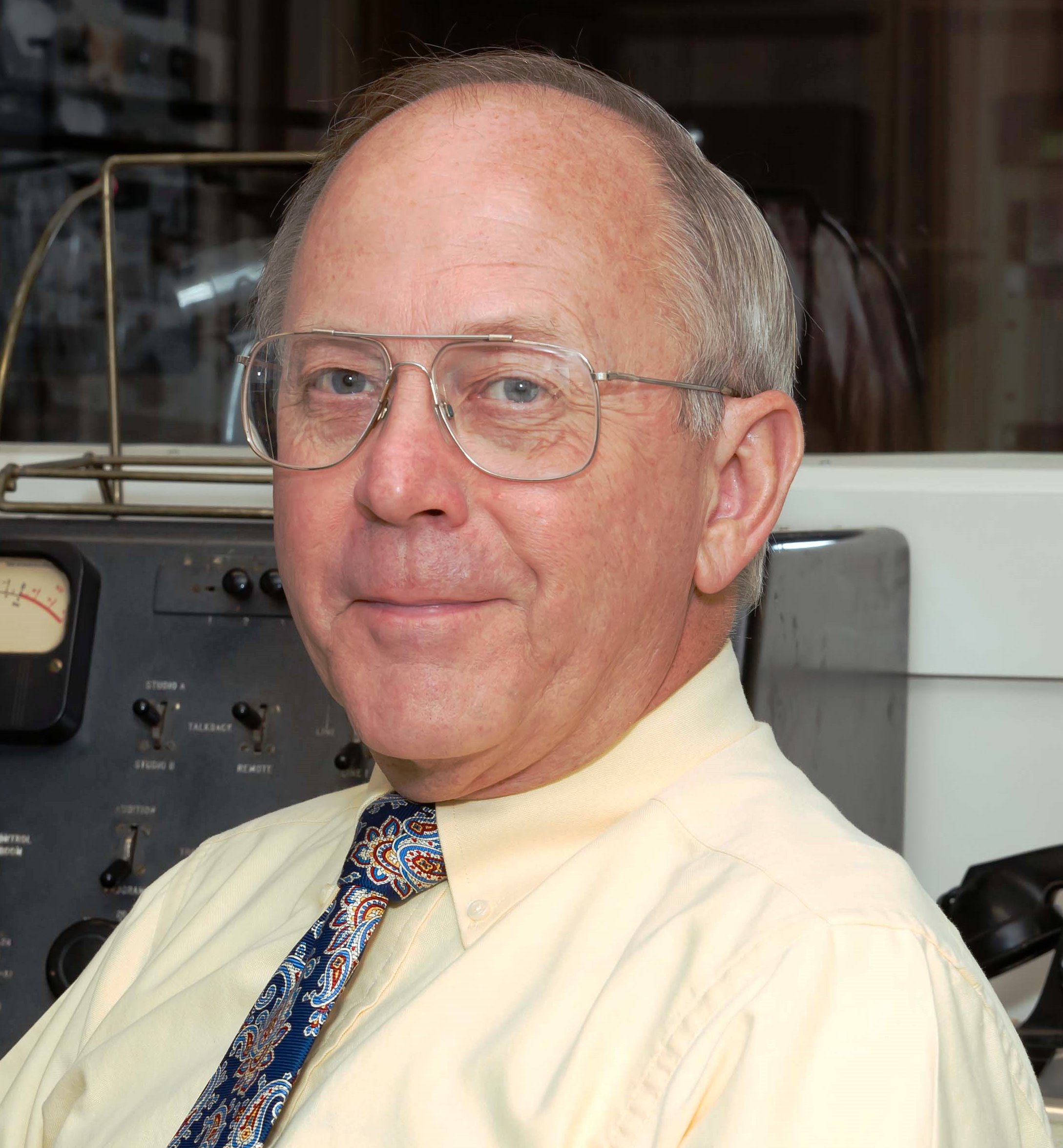Avid's Outgoing CEO Warns of ‘Disastrous Times’ for M&E
Jeff Rosica cites causes/offers cures at HPA Tech Retreat

RANCHO MIRAGE, CALIF.—Avid CEO Jeff Rosica has warned that the M&E industry is “at the edge of a disastrous time if we aren’t careful.”
In his closing address at the HPA Tech Retreat last week, Rosica, who is retiring from Avid, said he "can’t think of an industry that’s had this kind of change or transformation going on, and all the pressures at the same time in one industry. It is unprecedented. In my 37-year career, I can’t think of a time where even a fraction of this (was going on)” said Rosica in beginning his 30-minute presentation: “’Unbreaking’ an Industry: Fixing an Industry-Wide Mess.”
“Our industry is facing significant headwinds coming from all directions, and all at the same time,” he declared. “A tremendous technology shift is coming on (and) it’s really reshaping everything that we do.”
In enumerating the multiple challenges the industry is now facing, he cited uncertain business models, as well as evolving technologies and the way in which they’re being deployed.
“We have an ecosystem that’s under pressure and we need to look it,” said Rosica. “We must rethink what we do. Technology shifts are changing the way people work. Where the industry gets its revenue is changing, and changing business models mean new ways of doing things.
“Fear, uncertainty, and doubt are creating industry-wide angst. This in itself is creating a lot of concern. We have to do everything faster than we’ve ever done it before. We have to adapt and find new ways of doing this. And to add icing on this, we had Covid, and Covid accelerated a lot of thinking around how people want to work. It’s changing nearly everything about how we work and who we work with.”
Adopting New Technologies and Embracing Them
Rosica termed the industry now in a period where “an exponentially high level of technology shifts are going on,” referring to the adoption of the cloud and its resources, as well as the recent wave of artificial intelligence developments and deployments.
Get the TV Tech Newsletter
The professional video industry's #1 source for news, trends and product and tech information. Sign up below.
“Just moving to the cloud or virtualization, or whatever term you want to use—that’s fundamentally changing the way we do things as an industry. I think that’s a good thing, by the way. I don’t think it’s a bad thing. I think that working on a collaborative basis can be a big part of what saves this industry.
“I’m not afraid of (AI) taking anybody’s job away."
Jeff Rosica
“AI is coming in and this is another thing that’s going to reshape our industry,” said Rosica. “And it needs to reshape our industry.
He noted that there is now a lot of concern among M&E workers about artificial intelligence eliminating their jobs or otherwise affecting their employment.
“I say it has to,” said Rosica. “We have to get more efficient. We don’t have enough people to even keep up with current requirements. We have to find a way to get it done.
“I’m not afraid of (AI) taking anybody’s job away. We have to create better efficiencies so people can do more. Our industry has proven one thing—when you give it new technology it will find ways to use that technology to create more and better storytelling. I don’t think we should fear (AI); I think we should embrace it, because we need it.”
“Workflows are changing. All of this takes a lot of resources and a lot of investment, neither of which this industry has enough of. We have to talk about prioritization. We have talk about how to be reasonable about this. We’ve got to be careful about this. I really think as an industry we’ve got to be more realistic and think about what it is you have to have today, tomorrow, or next week.”
No More Strikes, Period!
In reflecting on the 2023 strikes by the Writers Guild of America and the Screen Actors Guild, and the trickle-down effect work stoppages had on employees in the media and entertainment business, Rosica flatly declared that the industry could not tolerate any more such massive interruptions.
“I understand why labor and management get into difficult discussions,” he said. “But we’ve got to be careful—I’m talking about both sides of the street.
“As business leaders and organizational leaders, we must find ways to avoid any more strikes. We have to.
“I know that we need good outcomes for workers, and we need to find a way to get there without work stoppages again. That almost killed our industry, or at least the ecosystem in our industry. It’s still tearing a little bit because of it. We’ve got to be careful because it will damage this business and it will take a decade to rebuild what we spent decades building, if we can even get it done.
“We’ve got to be careful!”
Get Ready for Disintermediation
In looking at other areas of the M&E industry where he thought big changes might be coming, Rosica called out the very intense pressure to curb operating costs, stating this practice may very well inadvertently trigger another shift in an already battered business, that of “disintermediation,” or a reduction or elimination in the use of intermediaries in delivering goods or services between producers and consumers.
“There is an even more intense focus on costs, and that pressure is being applied to the ecosystem,” said Rosica. “Everyone is expected to do more for less. It’s always been that way, but the pressure is more intense today, on top of what’s going on economically for the ecosystem
“We’ve got to be careful!
“And then, we’re asking this same ecosystem to shift business models, change technologies, change operating practices. All of this is impacting us. And this is going to cause disintermediation.
“Get ready for it!
“I’m not saying this may happen. I’ll take it to the bank. You can call me in five years and call me a liar if it doesn’t happen.
“This industry—because of technology shifts, the business shifts, and the operating shifts that we’re going through—we’re going to have disintermediation. You can count on it, and you need to prepare for it. It is already here to some degree. All players across the industry should be ready for this.”
“When you put it all together, I think we’re standing on the precipice of an industry disaster if we’re not careful.”
'Not Looking at the Big Picture'
Rosica declared, however, that there was a way out of this current dilemma.
“I do think there is a way forward,” he said. “I have faith in the people in this room. We have the talent, (but) as an industry, we’re not looking at the big picture. No matter what our role is, we’ve got to live together (and work to fix the problem).
“We have to collaborate like never before. A lot of team work is needed.
“We have to realize that change is inevitable, change is needed, and change is indeed good. Our industry is still too indifferent—we must find ways to do thing faster and cheaper.
“The pandemic was only the beginning—if there’s new normal, we’re not there yet.”
Rosica observed that while new methodologies and practices were good in themselves, the M&E industry should not be two quick to adopt them.
“Avoid bespoke thinking; we’re too small of an industry for that,” he said. “We need to preserve common workflows,” noting that while the M&E business needed to be open to possibilities that could come with AI and machine learning, it needed to exercise caution in the ways these emerging technologies are adopted.
“I do think there is a way forward. We can build something better for the future,” he said. “Some things can be more valuable and stronger when they’re broken.
“We need to be brave. All will be fine and shake out favorably in the end. The consumer’s appetite for appealing content will not go away, and streaming is not a bad model. We need to embrace it as it may be the savior.”
Rosica said that the M&E business could learn lessons from other industries that have undergone similar quantum shifts and disruptions, citing in particular the disruption in the music industry caused by the adoption of iPods as media players and the subsequent change in the way in which consumers purchased recordings, shifting from CD albums to the purchase of songs on an à la carte basis.
“The music industry took 22 years to recover,” said Rosica. “Let’s not make mistakes like this that will cause a 22-year-long falloff in revenues”.
“We have got to be sure we get this right!”
In conclusion, Rosica reminded the audience of his impending retirement from Avid Technology after more than a decade with that company, and expressed gratitude to those who had been supportive of him in career track.
“It’s been the absolute pinnacle of my career,” he said. “It’s been terrific. I want to thank a lot of people in this room who gave me input, who gave me advice, who gave me support. I thank you for that. It’s been an honor and I’m grateful.”
This year’s HPA Tech Retreat was held at the Westin Rancho Mirage Golf Resort & Spa here, and once again a “sell-out” event, attracting more than 800 television and motion picture industry players.
James E. O’Neal has more than 50 years of experience in the broadcast arena, serving for nearly 37 years as a television broadcast engineer and, following his retirement from that field in 2005, moving into journalism as technology editor for TV Technology for almost the next decade. He continues to provide content for this publication, as well as sister publication Radio World, and others. He authored the chapter on HF shortwave radio for the 11th Edition of the NAB Engineering Handbook, and serves as editor-in-chief of the IEEE’s Broadcast Technology publication, and as associate editor of the SMPTE Motion Imaging Journal. He is a SMPTE Life Fellow, and a Life Member of the IEEE and the SBE.

